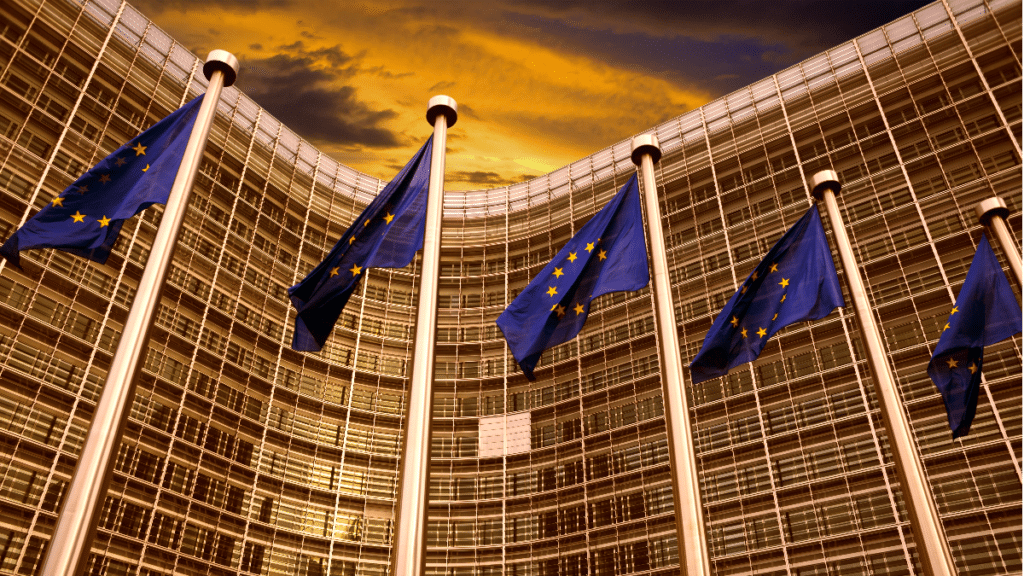Why is the European Commission So Determined to Ruin the Open Internet?
Konstantinos Komaitis, Thomas Lohninger / Mar 8, 2023Konstantinos Komaitis is an Internet policy expert and author, and a non-resident fellow and a senior researcher at the Lisbon Council; Thomas Lohninger is Executive Director at epicenter.works, a board member of European Digital Rights and a non-resident fellow at CIS Stanford.

During the annual World Mobile Congress in Barcelona, Thierry Breton, the European Commissioner for Internal Market, proclaimed: “The networks of today are simply not up to date with the massive transformation taking place.” This is a loaded statement with not much substance attached to it; it is designed to attract attention.
Breton indicates that the current European networks are not prepared to meet the challenges of new technologies, like the explosion of cloud computing or 5th generation networks, and thus require investment; yet, there is hardly any evidence to suggest this is the case. On the contrary, what we know is that European networks have proven remarkably resilient to meet unpredictable changes like the increased traffic generated during the COVID-19 global pandemic; and, the Internet itself has proven ready to also meet the various demands of new technologies, like IoT, cloud computing and the metaverse. There is nothing to indicate that the whole Internet ecosystem needs restructuring, something that Breton seems to be hinting at.
For over a decade now, European telecommunication network operators have devoted their lobbying efforts to trying to reclaim their former glory and reintroduce their monopoly power. “It is important to ensure that fair compensation is received for carried traffic,” said the European Telecommunications Network Operators’ Association (ETNO) in 2012. Ten years later, the message to European policy makers is familiarly consistent: “promote policy intervention and help ensure that big tech companies contribute their fair share to growing the EU Internet ecosystem, especially in the context of continuous data traffic increases.”
The introduction of the Internet more than three decades ago has upended the telcos’ business model and has redistributed the power dynamics that once used to be concentrated in their hands. In this regard, the relationship that they have fostered with content providers has not been one of love; on the contrary, it has been one of codependence. Telecommunication providers need technology companies to continue to produce innovative and attractive services that users want to pay to use; and, in turn, technology companies need telcos to ensure that users can actually get access to these services. In both cases, user demand is what makes both of these actors relevant and necessary. Without users, there is simply no need for either one of them to exist.
It is, therefore, alarming to observe the lack of transparency that has shrouded this entire debate. It is even more upsetting to see that users, who, undeniably, will mostly be affected by any such change, have not been encouraged to be active participants in the debate. For a year now, it feels like Europe’s Internet community is constantly one step behind the telecommunications industry while, simultaneously, trying to second-guess the intentions of the European Commission. On this point, the process leading up to the public consultation and Breton’s keynote speech at the Mobile World Congress, the world's biggest telecom industry event, is quite telling.
The first time users got to hear about the intentions of the Commission to reopen the debate on network fees was after an interview Breton gave in May 2022 to the French media outlet Les Echos. Whether by accident or intention, the timing of the announcement coincided with the release of a report from ETNO, which made the case for “a fair and proportionate compensation, and an enforcement or dispute resolution mechanism.” Both the Commission and ETNO appeared to be singing from the same hymn sheet, talking about the need to replace outdated rules and adapt to new realities that would allow Europe to fulfil its digital sovereignty agenda.
Notwithstanding what felt like an ambush, Europe’s Internet community was quick to intervene. In June 2022, realizing the urgency of the situation, 34 civil society organizations from 17 countries sent a letter urging the Commission to reconsider its plans. Soon after, industry voices chimed in, pointing to fears of abuse of power and the potential damage to the Internet’s ecosystem. By the end of the year, the letters of opposition to the Commission’s plans had growth both in substance and quantity. The European consumer organization (BEUC), the body of European telecommunications’ regulators (BEREC) and the European Internet Exchange Association (EuroIX), had all produced damning assessments on the idea of network fees, questioning the need for such a drastic policy shift in the absence of a market failure.
Similar concerns were raised by a cohort of academics and experts from Europe and across the world as well as from 54 members of the European Parliament. In the meantime, civil society groups sent a second letter, this time directed to the entire Commission, pleading for due diligence and reminding the Commissioners that this whole topic is not even in its work programme for 2023 or of this legislative term. And, if all these voices were not enough, seven member states, notably including Germany, also sent a letter to the Commission “warning against any possible hasty decisions” on this issue. Finally, in a recently-released report, the Netherlands Economic Minister stated: “The Netherlands is concerned about the plans of the large European telecom operators to charge toll on the Internet. This poses considerable risks to the Internet ecosystem and is likely to cause considerable harm to European consumers and businesses, and impeding European digitalization. The large telecom companies omitted crucial information resulting in a misrepresentation of facts.” The same week the German secretary for telecommunications followed his Dutch colleague, expressing his skepticism about the proposal and promising to submit the government’s views in the forthcoming months.
One would expect that all this criticism would put a break on the Commission, prompting a reexamination of the proposal. However, while the Internet community was trying hard to get the Commission’s attention and a response to information that was, at best, vague and inconsistent, the process has continued to unfold. Right before the end of the year, a series of leaks hinted at what the Commission had in mind and how it would end up maneuvering around strong opposition. The solution that it came up with was that, instead of releasing draft legislation language, it would launch an exploratory public consultation via a questionnaire that would specifically target online content providers and telecommunication operators. A questionnaire, exclusive to the expertise of certain actors, would provide an easier way to have a conversation that was more directed towards achieving the desired outcome while pretending to adhere to the procedural standards of rule making.
A leaked version of the questionnaire was published in the beginning of February, and it seemed to confirm all the previous rumours. Though inviting submissions from anyone, the questionnaire – which is now officially published by the Commission and is open until 19 May – is indeed designed to be exclusive to big tech and big telcos; it essentially, pits Electronic Communications Networks (ECNs), i.e. telecommunication providers, and, what the Commission calls, Large Traffic Generators (LTGs), i.e. content providers, against each other. Civil society, other interested parties and, most significantly, users will find it hard to participate; most likely, they will feel discouraged to do so. Perhaps that was the intention.
The fact, however, is that the questionnaire is unwelcoming and unattractive to anyone who is not fully immersed in networking and engineering activities; a simple user who feels concerned over the way such a policy could change her Internet experience will not be able to answer the questions. And, beyond the democratic deficit that this type of limitation creates, it is also against the Commission’s own guidelines for “better regulation,” which necessitate the inclusion of citizens, businesses and other stakeholders in the decision-making process. For this to happen, the process needs to both allow it and embrace it. The questionnaire fails to do that.
If there ever was a time for smart, better and fit for purpose regulation, it is now when the need for Europe to be competitive globally is more crucial than ever. And, the fact is that a network fee proposal will not achieve this. Just look at the example of South Korea and how the choice of favoring three main telecommunication operators has been the cause for less competition, less investment, poorer quality of service and less media pluralism.
Europe has a choice to make; let’s hope it makes the right one, even at the eleventh hour.
Authors

